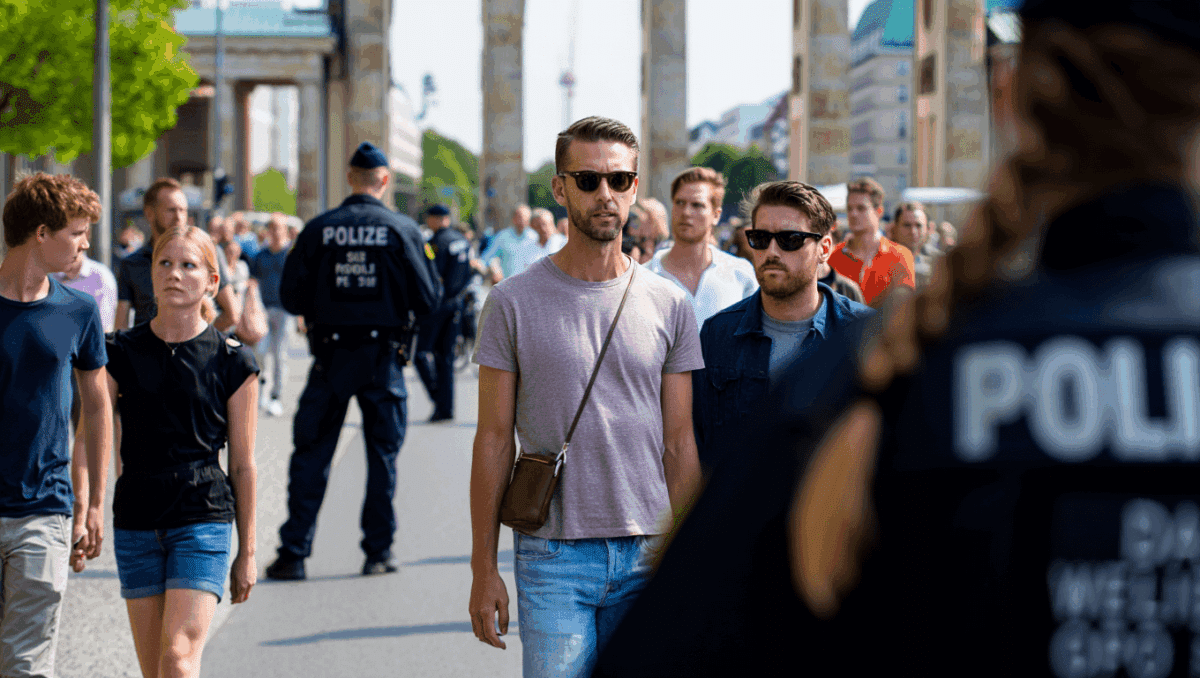Show summary Hide summary
Thirty-five years after the fall of the Berlin Wall, Germany’s streets look different. Once-spontaneous crowds that poured into squares and crossed the Wall in celebration are now more cautious, and public events that used to define civic life come with questions about safety before they begin.
The national mood has shifted from jubilation to vigilance. As officials mark reunification, everyday rituals—from Christmas markets to beer tents—face new threats, and the debate over how to protect public life without surrendering it has become urgent.
Why public gatherings in Germany feel fragile today
There is a growing sense of unease around mass events. Organizers, vendors and attendees plan with contingency in mind: extra checkpoints, heavier surveillance, and costly insurance. The result is a public sphere that feels supervised rather than communal.
High-profile incidents have made caution a default. Even when threats prove false, the disruption is real: crowds are held back, schedules are rearranged and a mood of anxiety replaces the spontaneous cheer that once defined many celebrations.
The attacks that have changed public life
Several violent incidents over the past year have eroded confidence in public safety. Each attack carried a different motive and method, but together they amplified a sense of vulnerability across German cities and towns.
- August 2024, Solingen: A lethal assault at a local anniversary festival left three people dead and wounded many others, shattering the sense of security at community celebrations.
- December 2024, Magdeburg: A vehicle plowed into a Christmas market, killing six people and injuring hundreds—an attack that struck at one of Germany’s most cherished seasonal traditions.
- February 2025, Munich: A driver rammed into a trade-union demonstration, killing a mother and her child and injuring dozens, turning a political gathering into a crime scene.
- Late 2024, Berlin power-sabotage: An assault on electricity infrastructure triggered widespread blackouts affecting tens of thousands of households, disrupting transit, medical care and emergency communications for days.
These events have not only caused loss of life and lasting trauma for victims and first responders, they have also changed how people think about being together in public.
How security measures and rules are reshaping public culture
Authorities have responded with visible security upgrades and new regulations intended to prevent further attacks. At the same time, broad public-order laws, smoking bans, and stricter alcohol controls have tightened the rules for communal spaces.
- Access controls and bag checks are becoming standard at fairs and festivals.
- Insurance premiums and security costs have surged, squeezing small organizers and volunteer-run events.
- Regulatory compliance—permits, barriers, and policing—adds complexity that many local organizers cannot absorb.
For many event producers, the arithmetic no longer adds up. The price of keeping an event open can be higher than the revenue it generates, forcing cancellations or radical downsizing.
Events canceled and the economic toll on traditions
Across the country, a long list of canceled gatherings reads like a map of what is being lost:
- Local spring fairs that once anchored community calendars
- Flea markets that provided income for small sellers
- Cultural festivals, such as cherry-blossom celebrations, that attracted tourists and locals alike
These cancellations carry financial consequences for vendors, entertainers, and municipal budgets that rely on tourism. Fair operators—whose livelihoods depend on seasonal turnover—describe the current moment as an existential threat to their businesses.
The fading spontaneity of big festivals
Even Germany’s largest gatherings have felt the strain. Oktoberfest, an economic powerhouse with multi-billion-euro turnover, came under threat last season after a publicized confession of intent appeared online. Officials treated the warning seriously, and the festival timeline and logistics were altered to prioritize safety.
The response was logical, but the effect was unmistakable: a historically jubilant event that once moved with the rhythms of the crowd now proceeds under heavy watch, with spontaneous celebrations much diminished.
Political violence is not monolithic—and the impact is widespread
While several recent attacks involved Islamist perpetrators, the disruption has come from different quarters. The Berlin power-sabotage showed how far-left militancy can also upend daily life, leaving commuters stranded, medical patients at risk and schools closed. Terrorism, political sabotage and lone-actor violence all converge to make public life more precarious.
The risk landscape is diverse—and so are the pressures it places on democratic societies.
Balancing safety, liberty and the future of public space
Security is essential, and no one advocates for recklessness. But there is a growing worry that the official response may help entrench a society defined by fear: fewer gatherings, more rules, and a public realm hollowed out by precaution.
When the state’s security approach becomes the baseline for everyday life, traditions and communal bonds can erode. Public events are where civic identity is performed and passed on; every cancellation chips away at that shared culture.
Citizens, organizers and policymakers face a difficult task: protect people without surrendering the spontaneity and openness that define public life.
The next steps for communities and leaders in Germany
Reclaiming safe, vibrant public spaces requires a mix of practical and civic responses:
- Invest in targeted security measures that protect without suffocating events.
- Support small organizers through subsidies or centralized security resources to reduce prohibitive costs.
- Encourage transparent risk assessments and community involvement in safety planning.
- Recognize and address the psychological impact on residents, victims and first responders through long-term support.
These steps aim to restore confidence while preserving the cultural life that makes public gatherings meaningful.
Sabine Beppler-Spahl is the Germany correspondent for spiked.
You might also like:

Robert Johnson is a dedicated columnist focusing on political and social debates. With twelve years in editorial writing, he provides nuanced, well‑argued perspectives. His commentaries invite you to form your own views and engage in critical issues.
Give your feedback
★★★★★
Be the first to rate this post
or leave a detailed review
